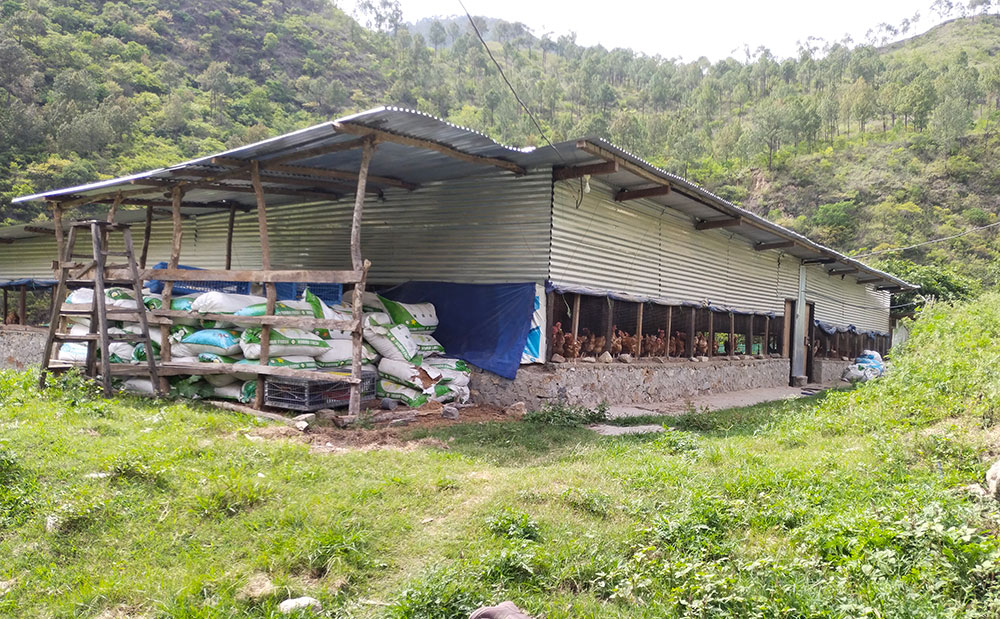… rising feed prices lead to numerous shutdowns
Neten Dorji | Radhi
As egg production in Trashigang dzongkhag continues to fall, shopkeepers, vendors, and residents depend on neighbouring Mongar dzongkhag to meet the demand.
The fall in supply has pushed the price by at least Nu 3 an egg, with a tray of eggs now costing Nu 390 and a carton of eggs costing Nu 2,600.
“In the past, the price of eggs was reasonable, and vendors used to come to our shop to sell eggs,” a shopkeeper in Trashigang town said. “Today, no one comes.”
Wholesalers also witnessed a drastic drop in egg supply from the farms. “It’s difficult to meet the demand,” said a wholesale shop owner. “It’s confusing why the production has fallen this summer. Usually, production decreases during winter.”
“I’ve been trying to contact poultry farmers in Mongar dzongkhag because I’m worried about not having enough eggs for my bakery,” expressed frustrated Tashi Yangphel, a bakery owner in Trashigang town.
Many poultry owners attribute the decline in egg production to the closure of poultry farms. “Rising cost of feed has forced many farmers to abandon backyard and semi-commercial poultry farming,” said Nima Tshering, a poultry farmer.
Some farmers are awaiting chicks as the National Poultry Development Centre (NPDC) in Lingmethang recently stopped its supply. The need to replace layer birds (egg-laying hens) has also led to the closure of several backyard farms.
Jigme, a farmer, said he has incurred substantial losses running a poultry farm. “I used to have over 1,500 chickens, but I closed the farm because the price of feed increases every day,” he said. “I invested all my savings and took out significant loans from banks to start the business. With no prospects, I had no choice but to close.”
Yeshi Dorji, a poultry farm owner in Radhi, said that the costly feed and low price for eggs have made poultry farming unviable. “Due to this, some farmers are already bankrupt,” he said.
He personally suffered a loss of Nu 1.2 million.
A few farmers believe that production levels will improve within two to three months, despite the feed price increasing to Nu 2,450 from Nu 2,100.
The senior livestock officer in Trashigang dzongkhag, Naina S Tamang, said that the production in the dzongkhag reduced from 4.4 million eggs in 2021 to 3.6 million last year.
“Although we don’t see many abandoned poultry farms in the dzongkhag, egg production has been affected due to problems with the feed,” the officer said.


